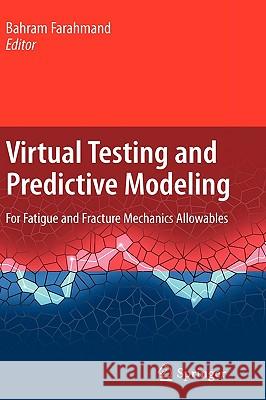Virtual Testing and Predictive Modeling: For Fatigue and Fracture Mechanics Allowables » książka
Virtual Testing and Predictive Modeling: For Fatigue and Fracture Mechanics Allowables
ISBN-13: 9780387959238 / Angielski / Twarda / 2009 / 407 str.
Virtual Testing and Predictive Modeling: For Fatigue and Fracture Mechanics Allowables
ISBN-13: 9780387959238 / Angielski / Twarda / 2009 / 407 str.
(netto: 575,06 VAT: 5%)
Najniższa cena z 30 dni: 578,30
ok. 22 dni roboczych.
Darmowa dostawa!
Thematerialsusedinmanufacturingtheaerospace, aircraft, automobile, andnuclear parts have inherent aws that may grow under uctuating load environments during the operational phase of the structural hardware. The design philosophy, material selection, analysis approach, testing, quality control, inspection, and manufacturing are key elements that can contribute to failure prevention and assure a trouble-free structure. To have a robust structure, it must be designed to withstand the envir- mental load throughout its service life, even when the structure has pre-existing aws or when a part of the structure has already failed. If the design philosophy of the structure is based on the fail-safe requirements, or multiple load path design, partial failure of a structural component due to crack propagation is localized and safely contained or arrested. For that reason, proper inspection technique must be scheduled for reusable parts to detect the amount and rate of crack growth, and the possible need for repairing or replacement of the part. An example of a fail-sa- designed structure with crack-arrest feature, common to all aircraft structural parts, is the skin-stiffened design con guration. However, in other cases, the design p- losophy has safe-life or single load path feature, where analysts must demonstrate that parts have adequate life during their service operation and the possibility of catastrophic failure is remote. For example, all pressurized vessels that have single load path feature are classi ed as high-risk parts. During their service operation, these tanks may develop cracks, which will grow gradually in a stable mann











